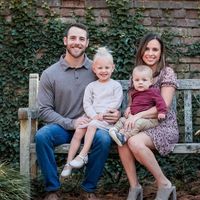
Write something
Defending your beliefs vs being open-minded. How to balance the two?
Context: Moses was living in the house of Pharaoh. He had survived being killed as a newborn baby, thanks to his mother and the daughter of Pharaoh. As he grows up, he seems to have a sense that he doesn't belong in the house of Pharaoh and that the Hebrews are actually his people. One day he goes out and sees an Egyptian attacking a Hebrew. Moses slays the Egyptian and buries him in the sand. Shortly after that, Moses witnesses two Hebrews fighting with one another. He goes to mediate the fight, but when one calls him out for killing the Egyptian, he flees into the desert to a well. There he meets his wife, a Midianite, and protects her and her sisters from thuggish shepherds. Shortly after this, he encounters God on Mount Horeb in the burning bush. Analysis: Defending your Brother, Home, Faith, Tradition. In this story, Moses is a Hebrew disguised as an Egyptian. He dresses like them, lives with them, eats with them. By all appearances, He is an Egyptian. However, we know his true heritage is with Hebrews. Moses also seems to have an inclination of that as well. Moses being confronted with the Egyptian attacking the Hebrew is a decision point for him. Does he choose to sit back and watch his true brother get attacked and even killed? Or does he make his decision to identify with the Hebrew and defend him? We face challenges like this all the time. When your tradition, your home, your beliefs are attacked by an outsider seeking to destroy, how do you respond? Some people choose to respond by ignoring it. Others choose to respond by assuming they deserve it. The way Moses responds is to defend. Healing Conflict inside the tradition, home, mind. The second situation is a little different. In the second fight Moses comes across, it is not between an Egyptian and a Hebrew, but between two Hebrews. How do you respond when there is fighting inside the home? One way to think about the difference between the two is to think about the difference between your home and your work. At work, if there is someone attacking (verbally or physically) another co-worker, the boss is warranted in cutting them off from the company and kicking them to the curb. However, if the same situation is happening between your kids or another family member, it is not wise to banish them into exile or death. (No matter how bad you may want to sometimes)
2
3
New comment Mar 10

What does spiritual mean?
How would you describe the word “spiritual” to 5 year old in a way that makes sense to them?
0
0
Exodus 17 - But Moses hands were "faith"?
Context: First battle against the seed of the serpent on the way to promised land (Amalek was a descendant of Esau. Name of Amalekites translates as "people of the crushed head"; see Genesis 3:15). Joshua (type of Christ) led the Israelites to battle and victory, looking to Moses stretched out hands on the hill in order to defeat them. - Moses stretched hands on the hill is a picture of the cross. - The literal Hebrew translation of Exodus 17:12 says that Moses hands were “faith” (trust; faithful). - Translators incorrectly translated his hands as "steady" - (Cross reference when Moses raised up the bronze serpent in the desert that the Israelites had to look upon to be saved from the snakes in wilderness. Jesus connects Himself to this story in John 3:14-15) To summarize, Moses was stretched out like a cross, and when the people looked upon him with his hands stretched, they were looking upon him in faith and trust and they defeated the Amalekites. This was the first battle against God’s chosen people on way to Promised Land, and they were led to victory by Joshua, who was a type of Christ. _____________________________________________________________________ Another interesting note: what about the “stone” that Moses rested on in verse 12? The Hebrew word for “stone” that Moses rested on is אבן. It's a compound word made up of "father" אב (av) and “son” בן (ben). So it’s the literal Hebrew compound word for father-son… אבן = Stone. If you do a word search of that Hebrew word it’s the same word used to describe the Messiah Jesus as the “Stone the builders rejected” (Psalm 118), the Shepard Stone (Genesis 49) and the Stone/cornerstone (Isaiah 28:16) Like Moses, we ultimately “rest” (from our works) in Jesus.. and we do this through faith/trust (description of Moses hands in Exodus 17). God does all the work - through us - to His glory. 8 Then Amalek came and fought with Israel at Rephidim. 9 So Moses said to Joshua, “Choose for us men, and go out and fight with Amalek. Tomorrow I will stand on the top of the hill with the staff of God in my hand.” 10 So Joshua did as Moses told him, and fought with Amalek, while Moses, Aaron, and iHur went up to the top of the hill. 11 Whenever Moses held up his hand, Israel prevailed, and whenever he lowered his hand, Amalek prevailed. 12 But Moses’ hands grew weary, so they took a stone and put it under him, and he sat on it, while Aaron and Hur held up his hands, one on one side, and the other on the other side. So his hands were steady (faith; trust; faithful) until the going down of the sun. 13 And Joshua overwhelmed Amalek and his people with the sword.
1
3
New comment Mar 6
1-3 of 3

skool.com/shepherd-men-7036
A group of men trying to sharpen their mind, body and faith in order to serve God and serve others.
powered by




